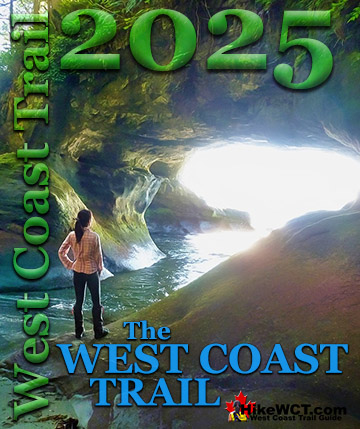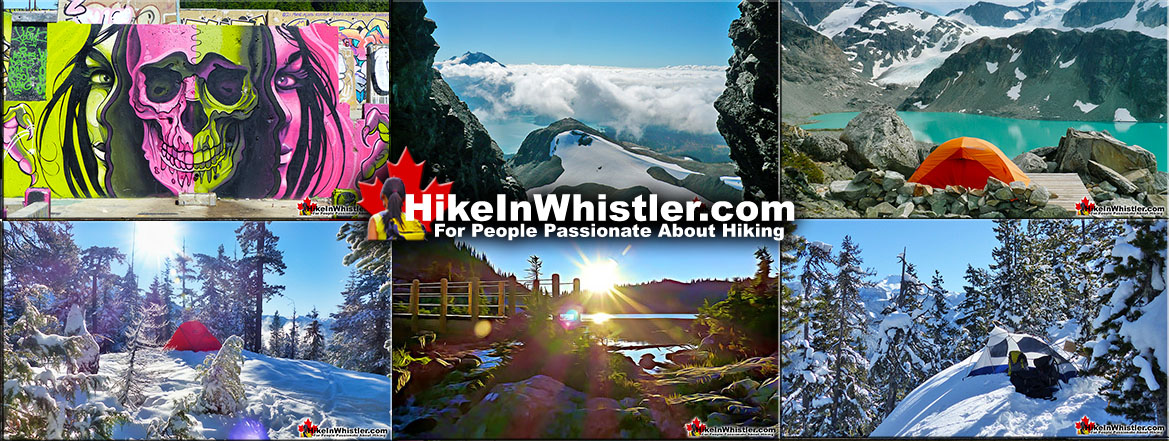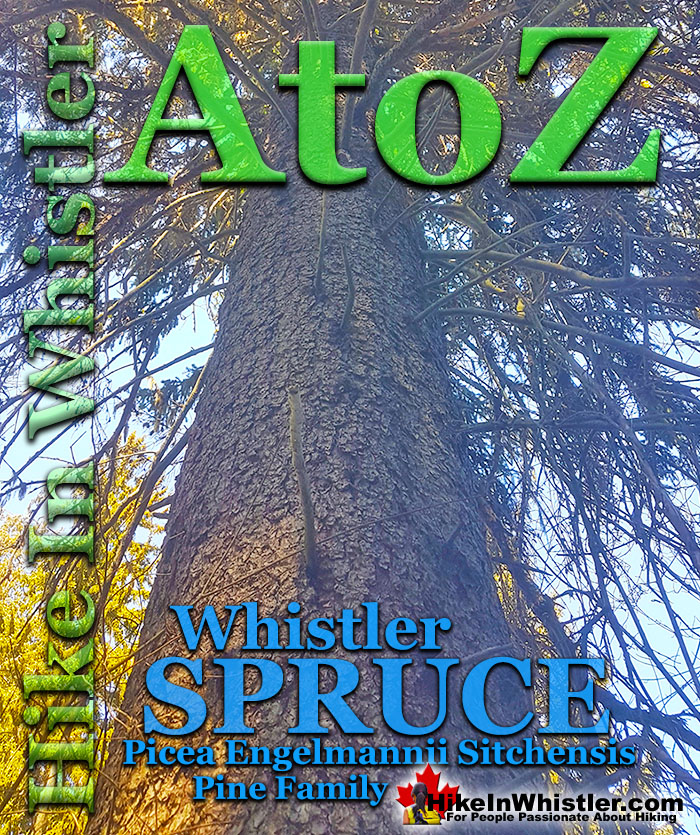
![]() Whistler spruce is a hybrid of the Sitka spruce and the interior Engelmann spruce. Sitka spruce trees thrive in the rainforests of the Pacific Northwest along the West Coast of North America, whereas Engelmann spruce trees grow in the much drier interior. The Whistler spruce is a fast growing tree that gets impressively large very fast. Possibly the best place to get a good look at big Whistler spruce trees is along the Valley Trail at the end of Lorimer Road.
Whistler spruce is a hybrid of the Sitka spruce and the interior Engelmann spruce. Sitka spruce trees thrive in the rainforests of the Pacific Northwest along the West Coast of North America, whereas Engelmann spruce trees grow in the much drier interior. The Whistler spruce is a fast growing tree that gets impressively large very fast. Possibly the best place to get a good look at big Whistler spruce trees is along the Valley Trail at the end of Lorimer Road.
Whistler & Garibaldi Hiking
![]() Alexander Falls
Alexander Falls ![]() Ancient Cedars
Ancient Cedars ![]() Black Tusk
Black Tusk ![]() Blackcomb Mountain
Blackcomb Mountain ![]() Brandywine Falls
Brandywine Falls ![]() Brandywine Meadows
Brandywine Meadows ![]() Brew Lake
Brew Lake ![]() Callaghan Lake
Callaghan Lake ![]() Cheakamus Lake
Cheakamus Lake ![]() Cheakamus River
Cheakamus River ![]() Cirque Lake
Cirque Lake ![]() Flank Trail
Flank Trail ![]() Garibaldi Lake
Garibaldi Lake ![]() Garibaldi Park
Garibaldi Park ![]() Helm Creek
Helm Creek ![]() Jane Lakes
Jane Lakes ![]() Joffre Lakes
Joffre Lakes ![]() Keyhole Hot Springs
Keyhole Hot Springs ![]() Logger’s Lake
Logger’s Lake ![]() Madeley Lake
Madeley Lake ![]() Meager Hot Springs
Meager Hot Springs ![]() Nairn Falls
Nairn Falls ![]() Newt Lake
Newt Lake ![]() Panorama Ridge
Panorama Ridge ![]() Parkhurst Ghost Town
Parkhurst Ghost Town ![]() Rainbow Falls
Rainbow Falls ![]() Rainbow Lake
Rainbow Lake ![]() Ring Lake
Ring Lake ![]() Russet Lake
Russet Lake ![]() Sea to Sky Trail
Sea to Sky Trail ![]() Skookumchuck Hot Springs
Skookumchuck Hot Springs ![]() Sloquet Hot Springs
Sloquet Hot Springs ![]() Sproatt East
Sproatt East ![]() Sproatt West
Sproatt West ![]() Taylor Meadows
Taylor Meadows ![]() Train Wreck
Train Wreck ![]() Wedgemount Lake
Wedgemount Lake ![]() Whistler Mountain
Whistler Mountain
![]() January
January ![]() February
February ![]() March
March ![]() April
April ![]() May
May ![]() June
June ![]() July
July ![]() August
August ![]() September
September ![]() October
October ![]() November
November ![]() December
December
Growing alongside the River of Golden Dreams in ideal conditions you will find some huge examples of the wonderfully large Whistler spruce. Possibly the biggest one in Whistler is found just before the bridge over the River of Golden Dreams on the right. Just a couple metres from the Valley Trail and next to the small side trail down to the water. It was recently cored by local tree expert Bob Brett and found to be over two centuries old. Brett notes in his excellent, Whistler's Old and Ancient Trees guide, that "size is not always a good predictor of age. Spruces grow very fast in moist, productive sites like this and can achieve huge sizes. Although almost 2 metres in diameter, this spruce is only 219 years old." As Whistler spruce trees are a fairly recently classed hybrid of Sitka spruce and Engelmann spruce trees, extensive statistics on how big they can get, or how old they tend to live is not well known. Great stats, of course exist for Sitka spruce and Engelmann spruce. The Sitka spruce is the larger of the two and tends to grow close to 100 metres(300ft) tall and with a trunk diameter over 5 metres(16ft). The much smaller Engelmann spruce tends to grow in the range of 25-40 metres(82-130ft), with a trunk diameter that rarely exceeds 1.5 metres(4.9ft). One enormous Engelmann spruce was only recently discovered near Joffre Lakes Provincial Park and has a trunk diameter of 2.2 metres! Named the North Joffre Spruce it is found high up the valley on the opposite side of the highway from Joffre Lakes. The longevity of both Sitka and Engelmann is roughly similar with known ages exceeding 700 years and in rare cases close to 1000 years.
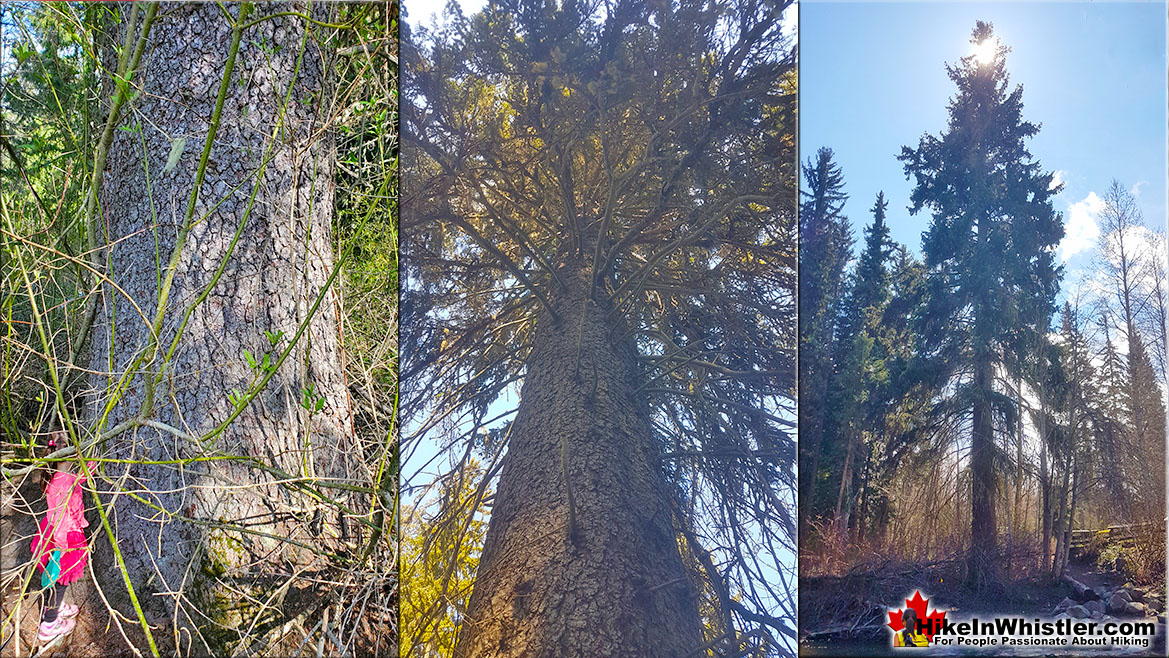
How to Identify a Whistler Spruce
Identifying a Whistler spruce tree usually starts with a look at the bark which looks like thin, scaly flakes. Compared with other big trees in Whistler forests, the cornflake-like look to Whistler spruce bark looks very different to the vertical contours visible in western hemlock and Douglas-fir bark. These three types of big trees, along with the western redcedar dominate the forests in Whistler. Whistler spruce bark is very scaly, while western hemlock and coast Douglas-fir bark is furrowed in vertical sections.
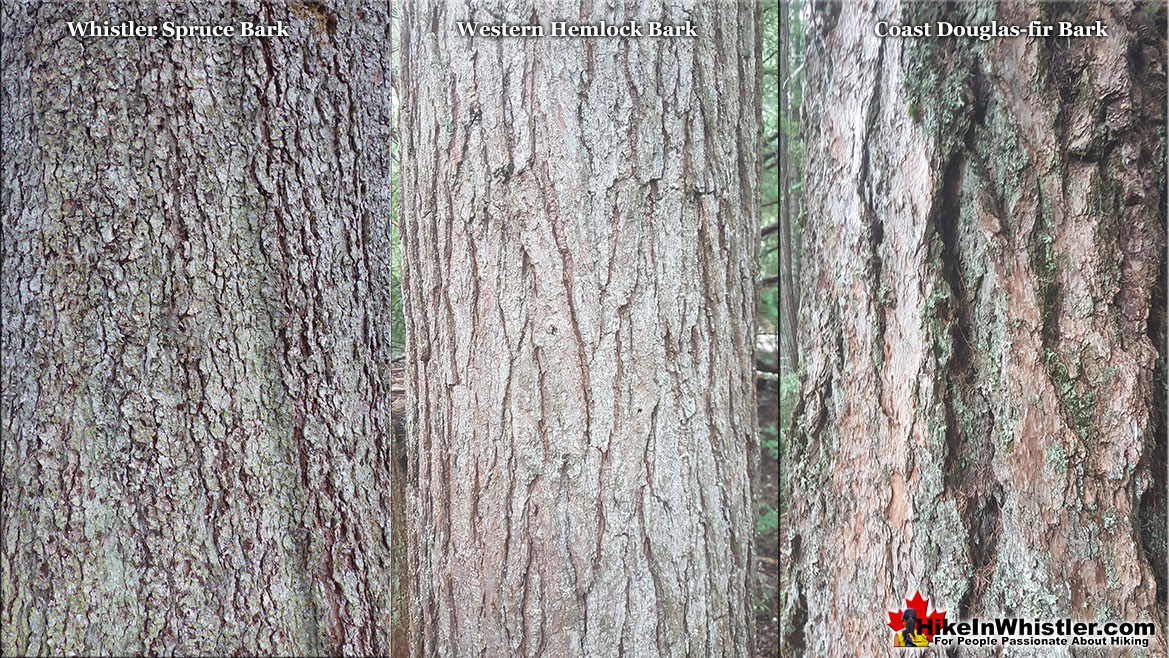
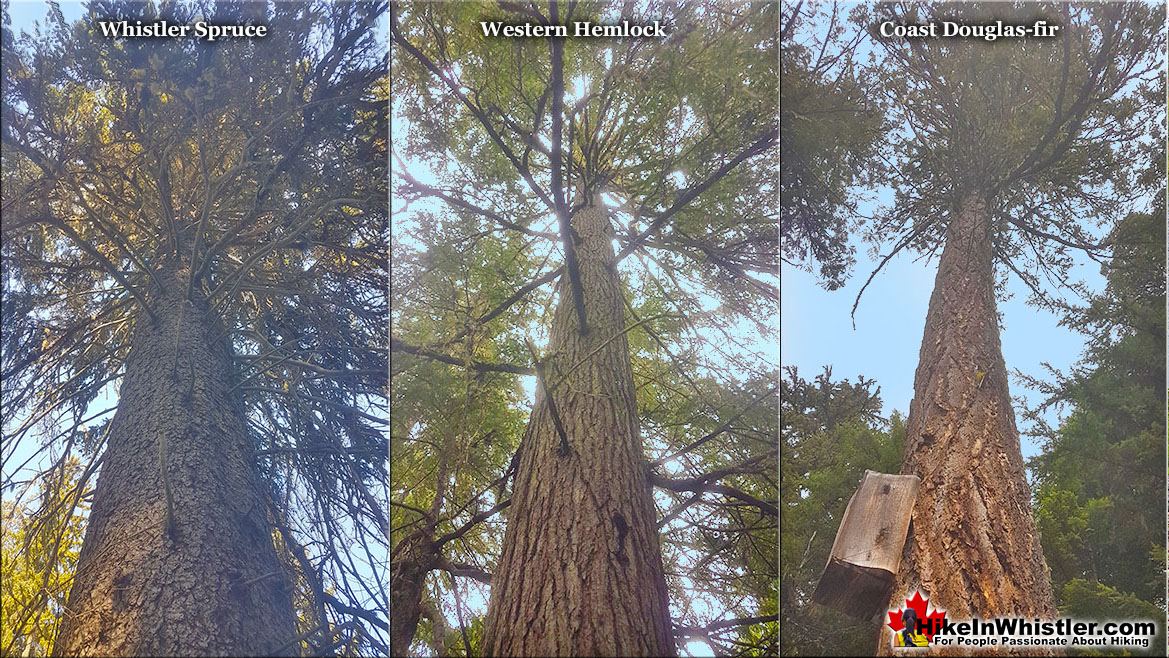
Whistler Spruce Cones
The cones of Whistler spruce trees are fairly small at just 4 or 5 centimetres long and are usually very numerous on the forest floor. The needles have one excellent identifiable feature if you look closely. Each need is attached to the twig by a small wooden peg. These remain attached to the twig long after the needled has separated and is a trait that all spruces share and readily distinguishes them from other similar trees in Whistler forests.
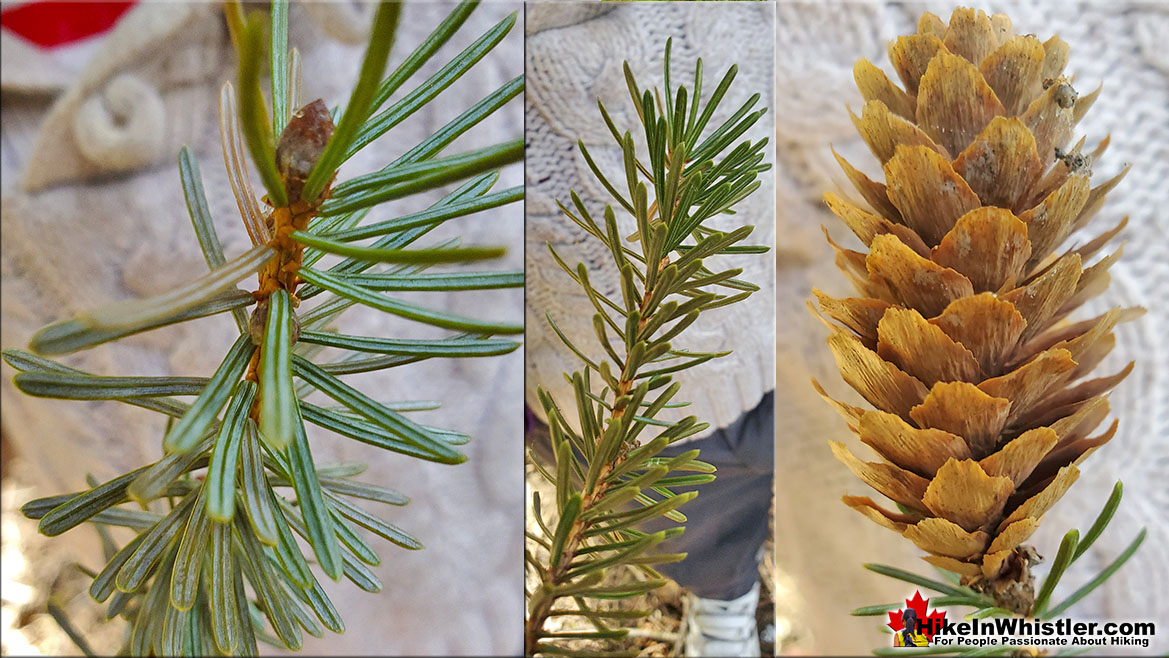
More Whistler & Garibaldi Park Hiking A to Z!
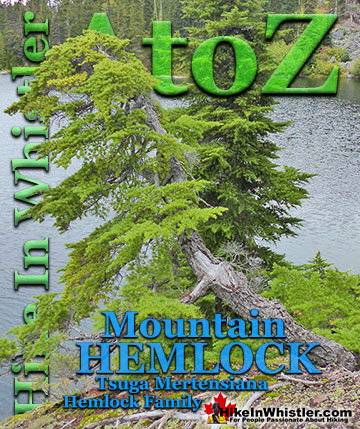
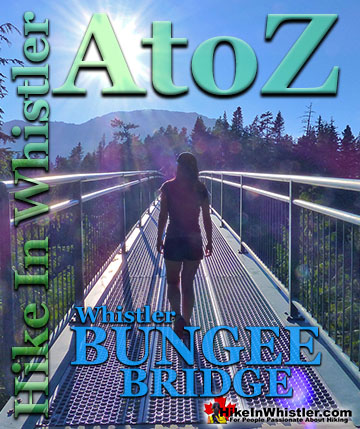
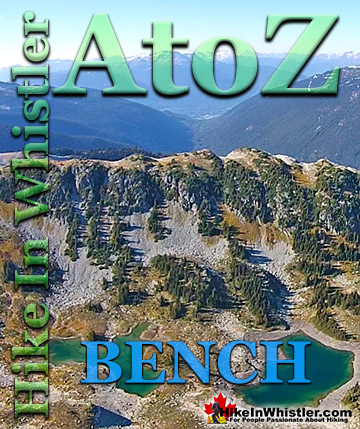
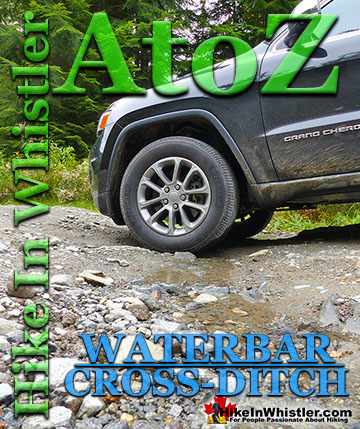
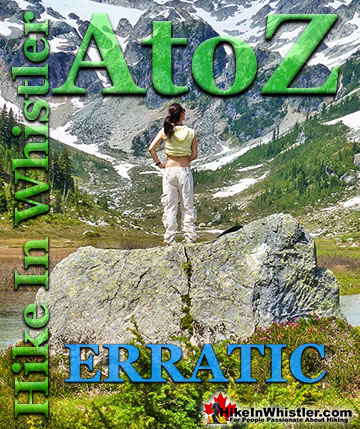
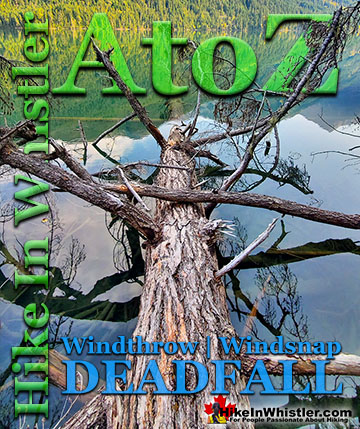
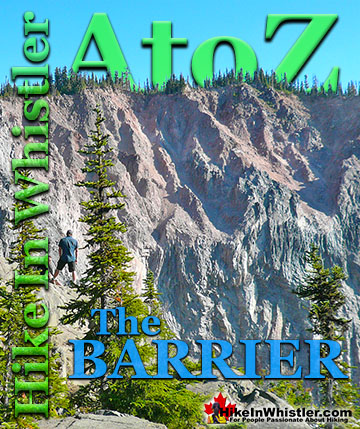
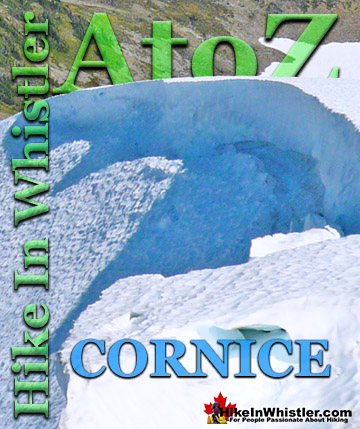
The Best Whistler & Garibaldi Park Hiking Trails!
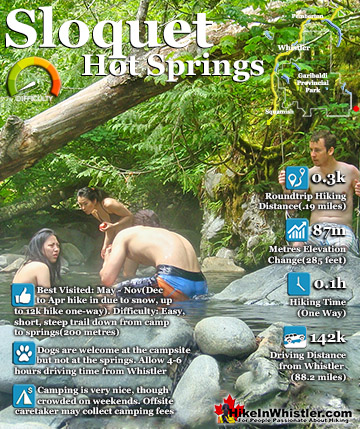
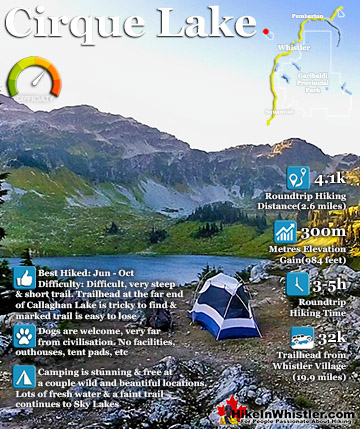
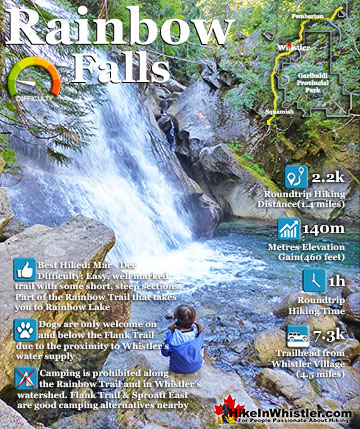
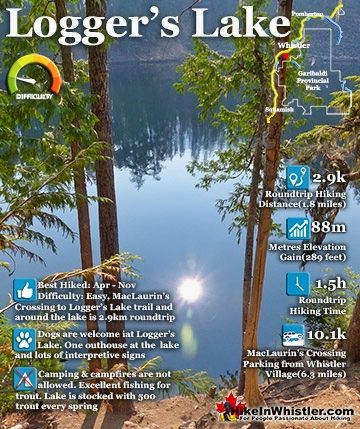
Whistler & Garibaldi Park Best Hiking by Month!
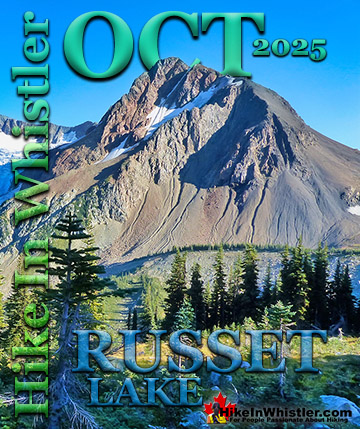
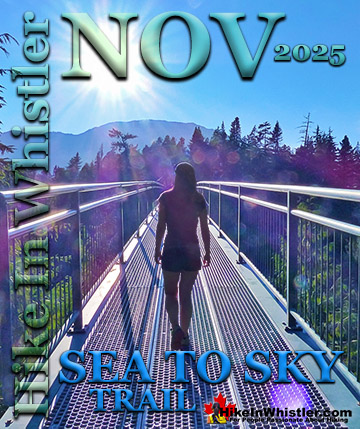
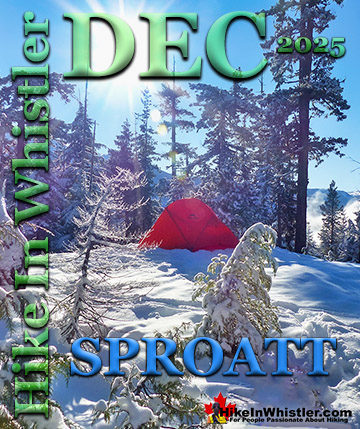
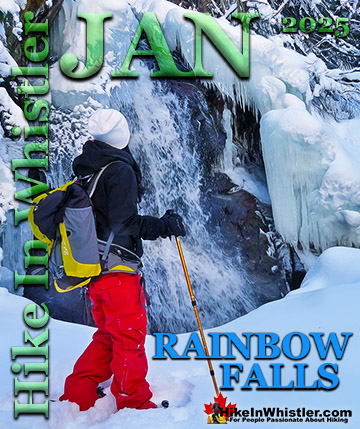
Explore BC Hiking Destinations!
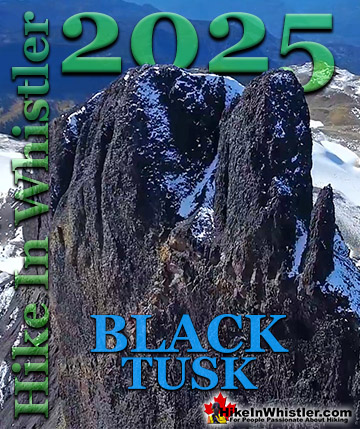
Whistler Hiking Trails
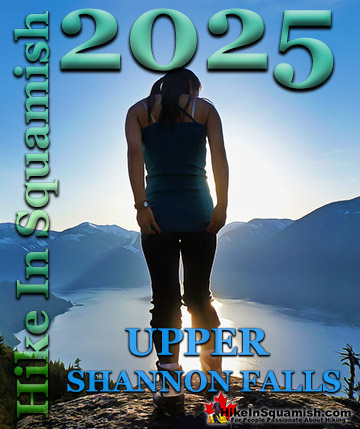
Squamish Hiking Trails
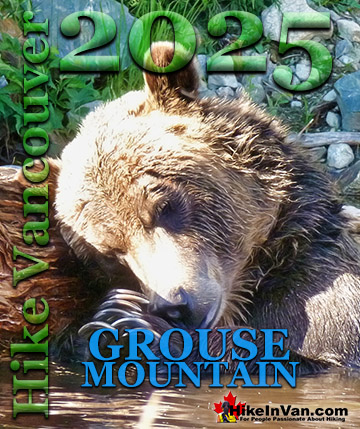
Vancouver Hiking Trails
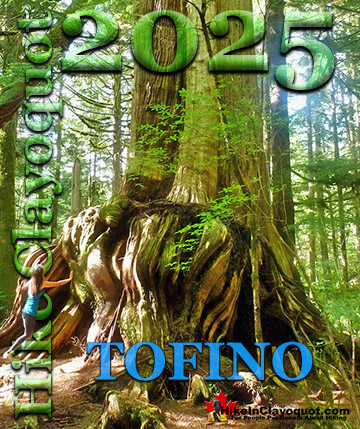
Clayoquot Hiking Trails
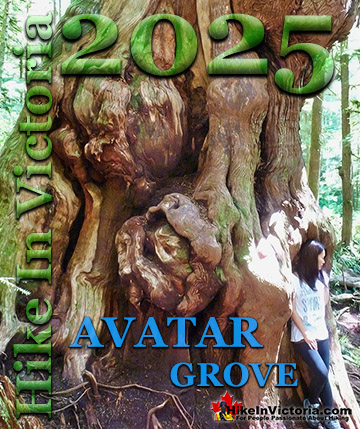
Victoria Hiking Trails
